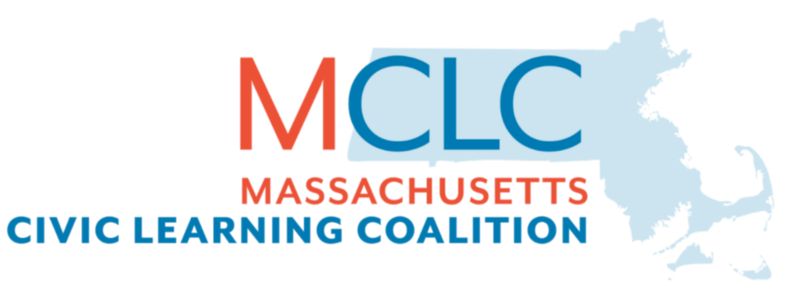
This month, CivXNow spotlights John Schneider, Managing Director of External Affairs at Mass Insight Education & Research about the struggles and learnings from advocating for civic learning in Massachusetts during a time of global pandemic and state budget shortfalls. Schneider is a member of the CivXNow State Policy Task Force representing the Massachusetts Civic Learning Coalition (MCLC). In his role with MCLC, he serves on the state-level Coalition’s Steering Committee and chairs its Advocacy Subcommittee.
In 2018, the Massachusetts Legislature passed, and Governor Charles Baker signed into law, S.2631 An Act to promote and enhance civic engagement. This law requires every middle and high school in the Commonwealth to provide students with the opportunity to participate in at least one student-led civics project, as part of their civics curriculum — a first in the nation. The law authorizes a Civics Project Trust Fund, to be supported with state funds and private funding, to support training and implementation of the law. Passing the legislation was an important first step. Now MCLC, which organized to pass the bill, is continuing to advocate to ensure full implementation.
Q: Tell us about Mass Insight Education & Research (Mass Insight) and your role in the implementation of the Massachusetts civics law?
Schneider: Mass Insight, is a nonprofit consulting firm providing leadership in policy and practice focused on improving schools and closing opportunity gaps. We are Boston-based but work with schools across the country. We became a member of the Mass Civic Learning Coalition (MCLC) in part to support the College Board’s Two Codes initiative which provides high school students access to college-level computer science and American government courses through the Advanced Placement program.
Q: What advocacy and or lobbying activities are you currently engaged in?
Schneider: MCLC is currently focused on the FY21 state budget and the implementation of the Mass Civics Project Trust Fund, which was funded for the first-time last year at $1.5 million.
Q: How has the pandemic affected your advocacy efforts?
Schneider: Needless to say, it has really changed how we meet and connect with legislators and staff. And not just the formal meetings that advocates have with legislators, but also the casual networking encounters — what I call, in a thick Boston accent, the “Hi, How are you?” chance meeting — that are so important to building relationships and being in the loop about state policy. I miss that the most.
Q: Are you finding it difficult to get policymaker’s attention?
Schneider: We are doing okay. One lesson from this work is that it is so important to build relationships with legislators, “early and often.” In January this year — it seems so long ago — MCLC sponsored a thank you event at the State House that was very well attended. So in June, when we organized several virtual lobbying days to focus our outreach efforts on our FY21 budget request, we were well received and not a Johnny-come-lately to legislators. We had more than 40 meetings with legislators and staff during the virtual lobbying days and, with additional outreach, we have since connected with over 60 legislators and staff. What’s frustrating is that our legislature is waiting for Congress to decide this month on a Covid relief package before finalizing the budget. Regardless, the state budget looks grim for FY21 and maybe even FY22.
Q: What tactics are you using to get policymakers’ attention?
Schneider: We prepared a very thorough report on MCLC’s work and the implementation of the trust fund and shared that as part of our lobbying meetings and subsequent communications. Data and results combined with stories can make a difference. We are planning additional outreach to the legislature soon to make sure they are invited to an upcoming civics conference at the end of September.
Q: What are you hearing about your state legislature’s session next year?
Schneider: Ha, we are still in session! It was supposed to end on July 31st but the rules were suspended and the session extended. Massachusetts is currently operating on a 1/12th budget, approving funding on a month-to-month basis, and it will be October or November before the FY21 budget is completed.
Q: How do you effectively manage a coalition and coordinate its advocacy activities during the pandemic?
Schneider: MCLC is fortunate to have some excellent part-time and student staff that has helped mobilize and support volunteers like me in the lobbying work. They were, and continue to be, instrumental in the coordination of our efforts. I also can’t say enough about the work that happened prior to this year in building support for this work. Relationships matter, a lot.
Q: Are you encountering political pushback regarding your efforts, people saying you’re advocating for things that are too conservative or too liberal?
Schneider: We are fortunate in Massachusetts that there is bipartisan consensus about the importance of civic education and support has come from both the legislature and the Governor. I guess we will soon see how deep that support really is as agreement is reached over an FY21 spending plan.
Q: What advice do you have for coalitions in other states who are encountering difficulty in getting their message through during the pandemic?
Schneider: Three thoughts: 1) Don’t wait until the next pandemic to develop relationships with key legislators and members of the administration. 2) Explain in a clear and concise way — no jargon, please — how civics education supports student learning and ways that you are helping teachers teach during the pandemic. 3) Keep working at building a big, bipartisan table with plenty of room for different political views BUT where there is consensus that learning about history, government, civics, and social change is important to the future of our nation and republic.
For more information, read the CivXNow case study, The Massachusetts Model,
to learn about MCLC and their successful efforts
to form a state-level coalition, pass legislation, and fund implementation.


 See All
See All